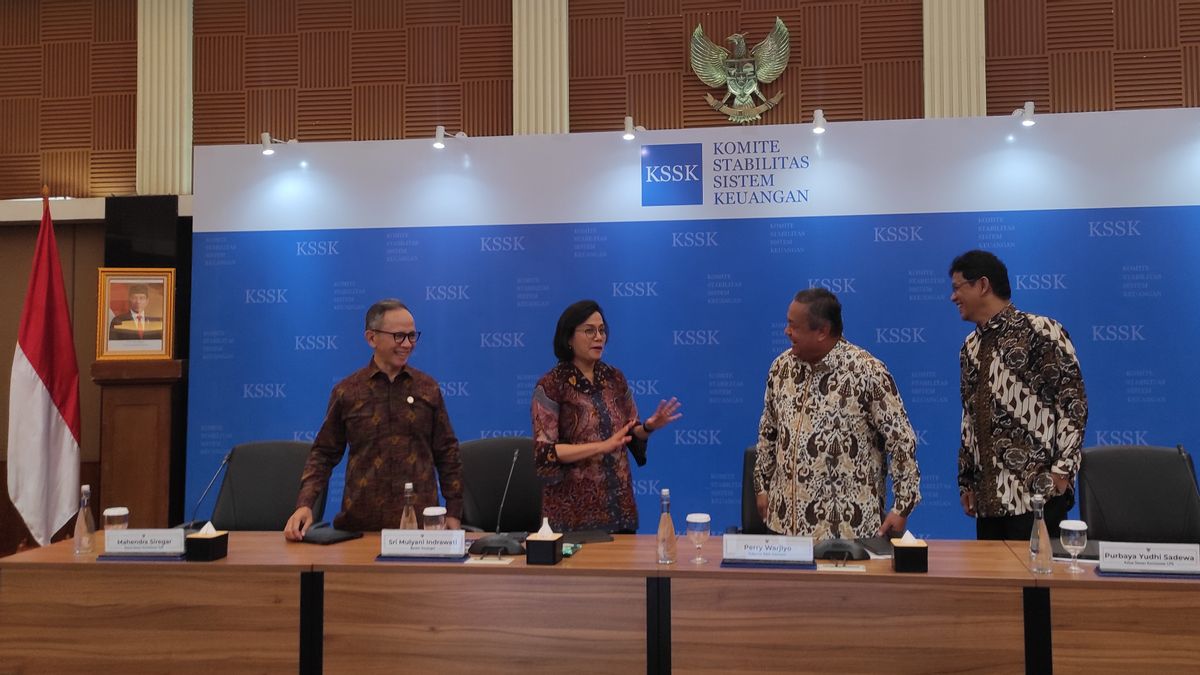JAKARTA - The Financial System Stability Committee (KSSK) said that Indonesia's financial system in the third quarter of 2023 was still stable even though global economic conditions were full of challenges and dynamics in the global financial market.
This is based on the results of the IV 2023 KSSK coordination meeting which was conducted by the KSSK consisting of the Minister of Finance (Menkeu) Sri Mulyani Indrawati, Governor of Bank Indonesia (BI) Perry Warjiyo, Chairman of the Board of Commissioners of the Financial Services Authority (OJK) Mahendra Siregar and Chairman Purbaya Yudhi Sadewa Deposit Insurance Corporation (LPS).
Minister of Finance (Menkeu) Sri Mulyani Indrawati said that financial system stability or KSSK for the third quarter of 2023 will remain maintained amidst increasing uncertainty in the global economy and financial markets.
Sri Mulyani explained that maintaining the stability of the Indonesian financial system was driven by economic conditions and a domestic financial system that was resilient or resilient. And is the result of KSSK coordination and synergy which will continue to be strengthened.
"Apart from that, KSSK is also committed to continuing to strengthen coordination and synergy as well as increasing awareness of the development of global risks in the future, including the spread to the economy from the domestic financial sector," said Sri Mulyani at a press conference in Jakarta, Friday, November 3.
Sri Mulyani explained that the slowdown in the global economy was due to high uncertainty accompanied by increasingly widespread divergence between countries.
In addition, the International Monetary Fund (IMF) estimates that the global economy will reach 3 percent in 2023 and slow down in 2024 to 2.9 percent.
This is influenced by the development of several developed countries. Like the economy in the United States (US), growth is expected to be supported by consumption and the service sector.
Meanwhile, China will experience a slowdown due to weakening consumption and a crisis in the property sector.
VOIR éGALEMENT:
According to Sri Mulyani, inflation is expected to remain high, driven by increases in food and energy prices due to geopolitical escalation, economic fragmentation, and the El Nino phenomenon.
"To control inflation, monetary policy interest rates in developed countries, including the fed funds rate (FFR), are expected to remain at a high level for a longer period of time or higher for longer," she said.
The English, Chinese, Japanese, Arabic, and French versions are automatically generated by the AI. So there may still be inaccuracies in translating, please always see Indonesian as our main language. (system supported by DigitalSiber.id)
















